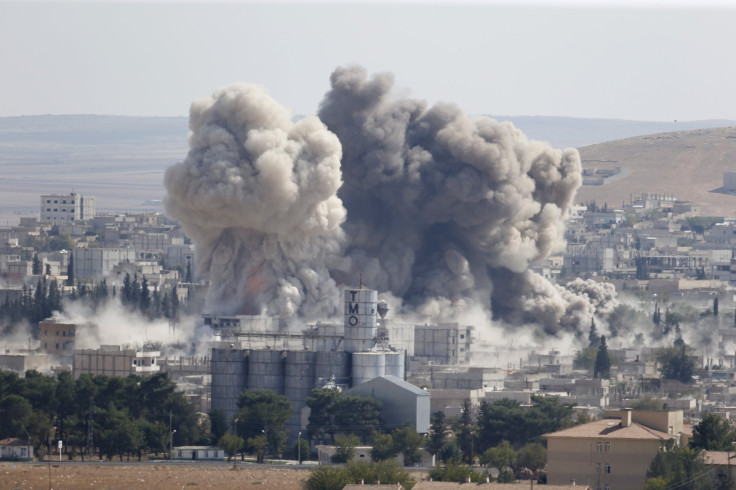Anti-ISIS Campaign Effective? Boots On The Ground Needed To Defeat Islamic State Group, US Officials Say

A U.S.-led military campaign in Syria and Iraq has weakened the Islamic State militant group, also known as ISIS, but will require ground forces to retake territory, senior military officials told Bloomberg News. Thousands of ISIS fighters have been killed, including key leaders of the group, yet the militants have continued to experience successes despite an international campaign meant to weaken their hold.
"It’s going to take years" to fight ISIS, U.S. Air Force Secretary Deborah Lee James told reporters in Dubai Tuesday, according to Bloomberg. "Ultimately, this area requires a political solution as well."
Lee said taking land from the group would require boots on the ground and greater coordination with the Iraqi army, Syrian opposition fighters and Kurdish fighters. The U.S.-led coalition has mostly played a supportive role for those fighting ISIS, launching airstrikes in areas held by the group.
War on IS needs 'boots on ground': US air force secretary - Al-Monitor: the Pulse of the Middle East https://t.co/zUr1TzgBOH
— ELIAS SAMAHA (@ELIASSAMAHA1) November 10, 2015
In recent months, the U.S.-led campaign has mostly been focused on targeting ISIS revenue sources, including its oil facilities, Lieutenant General Charles Q. Brown Jr., Commander of the U.S. Air Force Central Command, told reporters. ISIS is believed to bring in up to $50 million per month on oil sales.
The comments by the U.S. officials, made during an air show in Dubai, came as Gulf states like Saudi Arabia have scaled back their involvement in the campaign in Syria, instead focusing on fighting Houthi rebels in Yemen.
The White House said late last month that it was ready to deploy troops on the ground in Syria for the first time to advise and assist rebels fighting ISIS. A previous train-and-equip program was canceled last month after it was learned that just a handful of rebels who graduated the program remained. The new deployment would include less than 50 Special Operation forces who would be sent to play an advisory role in Kurdish-controlled territory in northern Syria.
Syria: Obama authorizes boots on ground to fight ISIS - CNN https://t.co/cGVSnnHXZf
— Live News TV (@LiveNewsTV3) November 10, 2015
ISIS fighters are believed to control about a third of Syria and Iraq. In areas under their thumb, militants have imposed a harsh penal code rooted in a puritanical and narrow interpretation of religion. They have vowed to spread their caliphate and stage attacks around the world. An ISIS affiliated group in Egypt recently claimed responsibility for downing a Russian airplane in the Sinai Peninsula. That incident, which led to the deaths of some 224 people, is still being investigated.
© Copyright IBTimes 2025. All rights reserved.






















